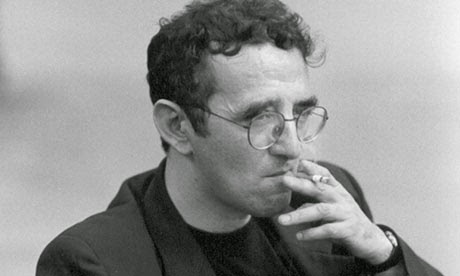Firefighter and archaeologist were the first two jobs I wanted to have. Firefighter goes back to my obsession with the show "Emergency!" Roy and John were cool for me long before I knew who Ponch and John or Bo and Luke were. Archaeologist came from seeing "Raiders of the Lost Ark" in the then Avalon movie theater.
Yes Harrison Ford/Indiana Jones oozed cool. But it wasn't the whip, or being shot at, or the fights or chases that pulled me in; it was the idea that the planet, its history, was a mystery, a puzzle to be solved, put back together. It was the notion of digging in the earth and uncovering and being able to physically touch and come in contact with history.
It's funny the things in life we let ourselves drift away from when our minds take on more practical matters.
Clearly, science hasn't been the direction I've taken my life. But the gap between a field like science and a pursuit such as poetry aren't too far afield:
On the contrary science opens up realms of poetry where to the unscientific all is a blank. Those engaged in scientific researches constantly show us that they realize not less vividly, but more vividly than others, the poetry of their subjects... Think you that the rounded rock marked with parallel scratches calls up as much poetry in an ignorant mind as in the mind of a geologist, who knows that over this rock a glacier slid a million years ago? The truth is, that those who have never entered upon scientific pursuits know not a tithe of the poetry by which they are surrounded. - Herbert Spenser
Geology, archaeology, philosophy, poetry, they all begin in curiosity, in wonder. They all look to gain or attain some form of mastery, an in-depth attempt at understanding their subject and their world. They all dig in some way, shape, or form.
My mind of late has been on rocks. I am terrible with names, whether people's or things'. I can be bowled over by the magnificence of something I encounter on a hike or trail run, but not try to learn more about it or understand it better. That's one of the things I'm taking into the new year: I want to dig deeper.
Geology, as much as archaeology, can be the study and solving of puzzles. I've had recent conversations with my nine-year-old daughter about continental drift and with friends about Pangaea. Without geological study, there is no mystery, no jaw-dropping wonder about the world on which we find ourselves standing. One of my favorite non-fiction writers in John McPhee. In his "Annals of the Former World," he condenses geology, mystery and poetry into a single sentence:
When the climbers in 1953 planted their flags on the highest mountain, they set them in snow over the skeletons of creatures that had lived in the warm ocean that India, moving north, blanked out. Possibly as much as 20,000 feet below the seafloor, the skeletal remains had turned into rock. This one fact is a treatise in itself on the movements of the surface of the earth. If by some fiat, I had to restrict all this writing to one sentence, this is the one I would choose: The summit of Mt. Everest is marine limestone.
Summitting Mt. Everest is a supreme physical accomplishment. But knowing what you are standing on, and being able to reel in that absurdity should be a part of that sense of both achievement and mystery.
That is a depth I am looking to add to my own adventures. To dig deeper. To recognize and celebrate the wonder of the geologist, as well as the poet and the philosopher. To go back to the mystery and the puzzles of history that grabbed my attention via Harrison Ford and Raiders of the Lost Ark.
I wonder if I need a new hat?








































